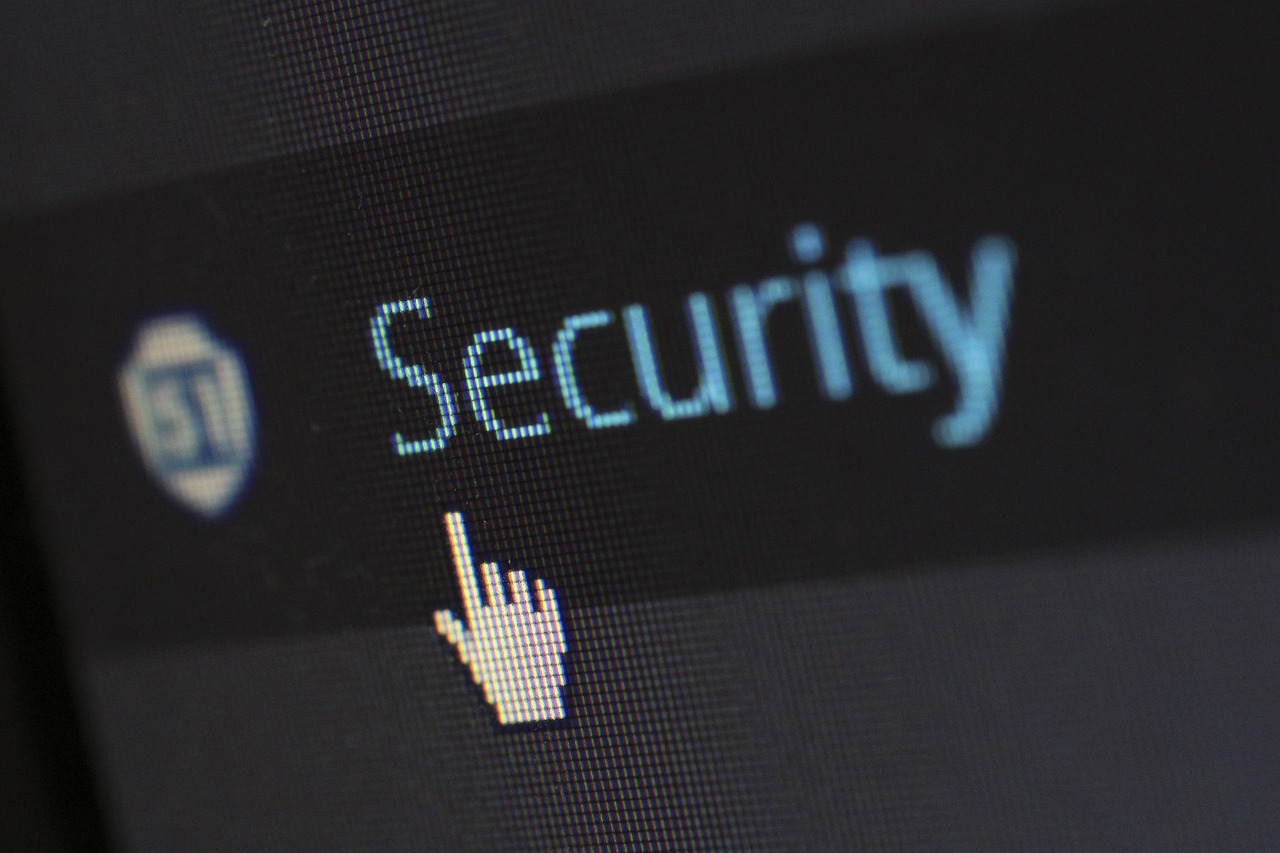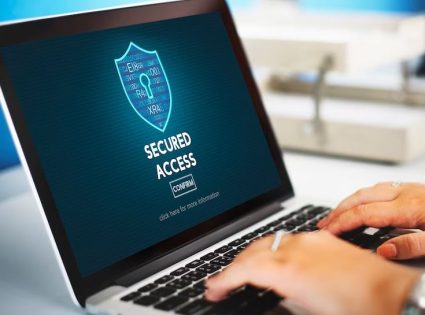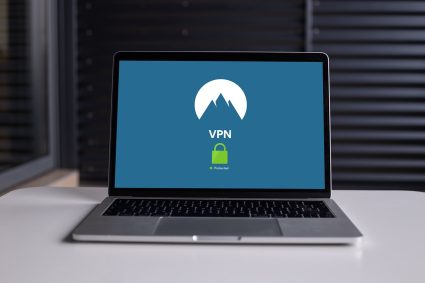
Laptop security is an important aspect of digital safety and protecting your device and data from malicious actors. As laptops become increasingly powerful and ubiquitous, it is essential to have an understanding of the risks and how to protect yourself when using them. In this article, we will discuss the importance of laptop security and the risks of not securing your laptop. We will then explore the different measures you can take to secure your laptop, including physical security, software security, and other measures.
Content of the page
The Importance of Laptop Security
With the rise of technology, laptop security has become an increasingly important issue. Laptops are used to store and process large amounts of sensitive data, including financial information, personal data, and confidential work documents. It is therefore essential to ensure that this data is protected from malicious actors who may be looking to steal it for their own gain. Additionally, laptops are often used in public places, where they can be more easily targeted by thieves.
The Risks of Not Securing Your Laptop
The risks of not securing your laptop are numerous. If your laptop is not properly secured, it could be vulnerable to malicious actors who may be looking to steal your data or access your accounts. Additionally, if your laptop is lost or stolen, it could be used to access your accounts and steal your identity. You may also be vulnerable to viruses and other malicious software that can compromise your data and your system.
1. Physical Security
Securing Your Laptop in Public Places
When using your laptop in public places, it is important to be aware of your surroundings and take measures to reduce the risk of theft. When you are not using your laptop, make sure to keep it in a secure location, such as a bag or case. Additionally, be sure to keep your laptop in your line of sight at all times and be aware of anyone who may be attempting to gain access to your device.
Using a Laptop Lock
 Using a laptop lock is one of the best ways to physically secure your laptop. A laptop lock is a device that attaches to your laptop and prevents it from being moved or taken without your permission. This is especially important in public places, where a laptop can be easily stolen. Many laptop locks are relatively inexpensive and easy to use, making them a great option for anyone looking to increase the physical security of their laptop.
Using a laptop lock is one of the best ways to physically secure your laptop. A laptop lock is a device that attaches to your laptop and prevents it from being moved or taken without your permission. This is especially important in public places, where a laptop can be easily stolen. Many laptop locks are relatively inexpensive and easy to use, making them a great option for anyone looking to increase the physical security of their laptop.
Protecting Your Laptop from Theft
In addition to using a laptop lock, there are a number of other measures you can take to protect your laptop from theft. One of the most important measures is to always keep your laptop with you when you are not using it. Additionally, be sure to keep your laptop out of sight when possible and keep it in a secure location, such as a bag or locked drawer. Finally, if you are in a public place, it is important to be aware of your surroundings and take measures to reduce the risk of theft.
2. Software Security
Antivirus and Anti-malware Software
Using antivirus and anti-malware software is one of the most important measures you can take to protect your laptop from malicious software. Antivirus software helps to protect your system from viruses, while anti-malware software helps to protect against malicious software, such as spyware and ransomware. It is important to keep your antivirus and anti-malware software up to date in order to ensure that your system is protected from the latest threats.
Firewall Protection
Using a firewall is another important measure you can take to protect your laptop from malicious actors. A firewall is a piece of software that helps to protect your system from unauthorized access by blocking malicious traffic. Additionally, a firewall can help to protect your system from malicious software, such as viruses and spyware.
Automatic Updates and Patching
Keeping your software up to date is an important measure you can take to protect your laptop from malicious actors. Many software programs and operating systems provide regular updates and patches to address security vulnerabilities, and it is important to install these updates in order to ensure that your system is protected. Additionally, it is important to keep your antivirus and anti-malware software up to date in order to ensure that your system is protected from the latest threats.
3. Data Protection
Creating Strong Passwords
Creating and using strong passwords is one of the most important steps you can take to protect your device and data. A strong password should be at least 8 characters long and include a mix of upper and lower case letters, numbers and special characters. It is also important to create unique passwords for each of your accounts, and to change them frequently. Additionally, using a password manager can help you keep track of your passwords and make sure they are secure.
Using Two-Factor Authentication
Two-factor authentication (2FA) is a way to add an extra layer of security to your online accounts. With 2FA, you will be required to enter two different pieces of information in order to gain access to your account. This can be a combination of something you know, such as a password, and something you have, such as a physical token or your mobile phone. By using 2FA, you can ensure that even if someone manages to guess your password, they will not be able to access your account without the second factor.
Encrypting Your Data
Data encryption is a process that scrambles data so that it cannot be read without a key. If your laptop is stolen or lost, encrypting your data can help protect it from being accessed without your permission. Most modern laptops come with encryption software pre-installed, and a variety of third-party encryption tools are also available.
Backing Up Your Data
Backing up your data is an important part of keeping it safe in the event of a hardware failure or other issue. There are a variety of ways to back up your data, including using an external hard drive or cloud storage service. It is important to make sure that your backups are secure, and that you keep them updated regularly.
4. Internet Security
Using a Virtual Private Network (VPN)

A Virtual Private Network (VPN) is a way to securely access the internet from a public network. With a VPN, your data is encrypted and your IP address is hidden, making it more difficult for hackers to access your device or data. Additionally, using a VPN can help you avoid unwanted tracking by websites and advertisers, and access websites and services that might otherwise be blocked.
Safe Browsing Habits
Developing safe browsing habits is an important part of keeping your laptop and data secure. This includes avoiding sites that are known to contain malicious software, using only secure websites for online transactions, and being wary of phishing scams. Additionally, it is important to install updates for your browser and operating system regularly in order to ensure that you have the latest security patches.
Avoiding Phishing Scams
Phishing scams are a common way for hackers to gain access to your device and data. These scams typically involve emails, websites or phone calls that appear to be from a legitimate source, but are actually designed to gain access to your information. To protect yourself, it is important to be aware of the signs of a phishing scam and to never click on links or open attachments from emails that appear suspicious.
Securing Your Wi-Fi Network
Securing your Wi-Fi network is another important step in protecting your device and data. This includes using a strong password for your network and enabling encryption, such as WPA2. Additionally, it is important to keep your router firmware updated, as this can help prevent it from being hacked.
5. Best Practices for Laptop Security
Laptop security is a crucial part of any data and device protection plan. With the right measures in place, you can help ensure that your laptop and the data stored on it are secure. Here are five best practices for laptop security.
Don’t Leave Your Laptop Unattended
It may seem obvious, but leaving your laptop unattended can be a major security risk. Even if you’re just stepping away for a few minutes, it’s important to ensure that your laptop is secure. Make sure to lock your laptop before you leave, and never leave it in an area that is accessible to strangers.
Be Cautious of Suspicious Emails and Websites
Another important security measure is to be cautious of suspicious emails and websites. Be wary of any emails that seem out of the ordinary or contain links to unknown websites. Also be sure to only visit websites that have been verified as secure. If you’re unsure, it’s best to avoid clicking on any links or downloading any files.
Regularly Update and Scan Your Laptop
It’s important to keep your laptop updated with the latest security patches and scan it regularly for any potential threats. Be sure to use a reliable antivirus program and scan your laptop on a regular basis. This will help ensure that any potential vulnerabilities are identified and addressed before they can be exploited.
Enable Find My Device Feature
If your laptop is ever lost or stolen, it’s important to have a way to track it down. Many laptops come with a “Find My Device” feature which can be used to locate and lock your device if it’s ever misplaced. Be sure to enable this feature on your laptop and make sure it’s always turned on.
Conclusion
The Importance of Taking Laptop Security Seriously
Laptop security is an important part of any data and device protection plan. By taking the necessary steps to secure your laptop, you can help ensure that your device and the data stored on it are safe. Be sure to always follow the best practices outlined above and be cautious of any suspicious emails or websites.
Final Thoughts on Laptop Security
By following the best practices for laptop security, you can help ensure that your laptop and the data stored on it are secure. Make sure to never leave your laptop unattended, be cautious of suspicious emails and websites, regularly update and scan your laptop, and enable the Find My Device feature if available. Taking these steps can help protect your laptop and the data stored on it from potential threats.
